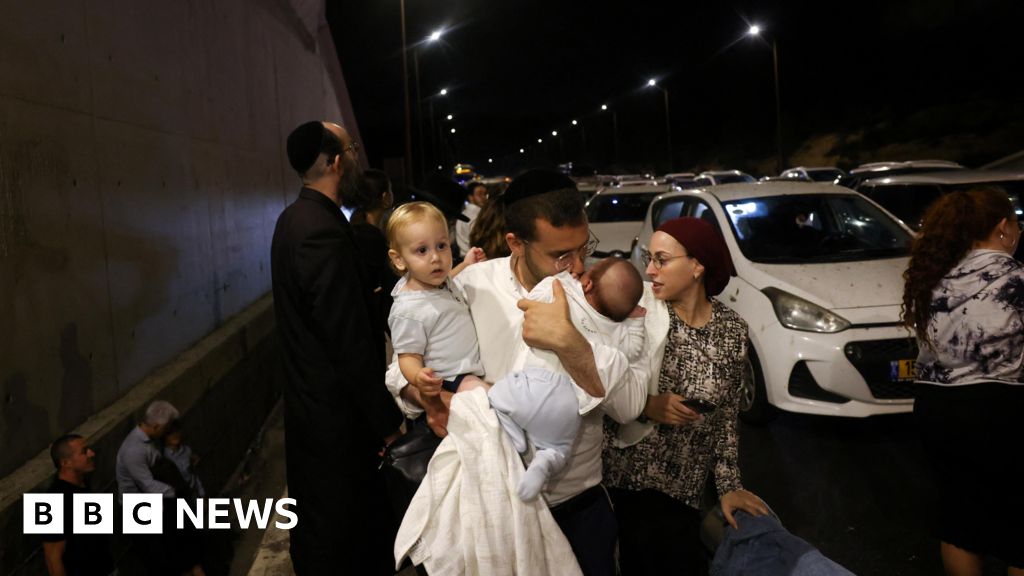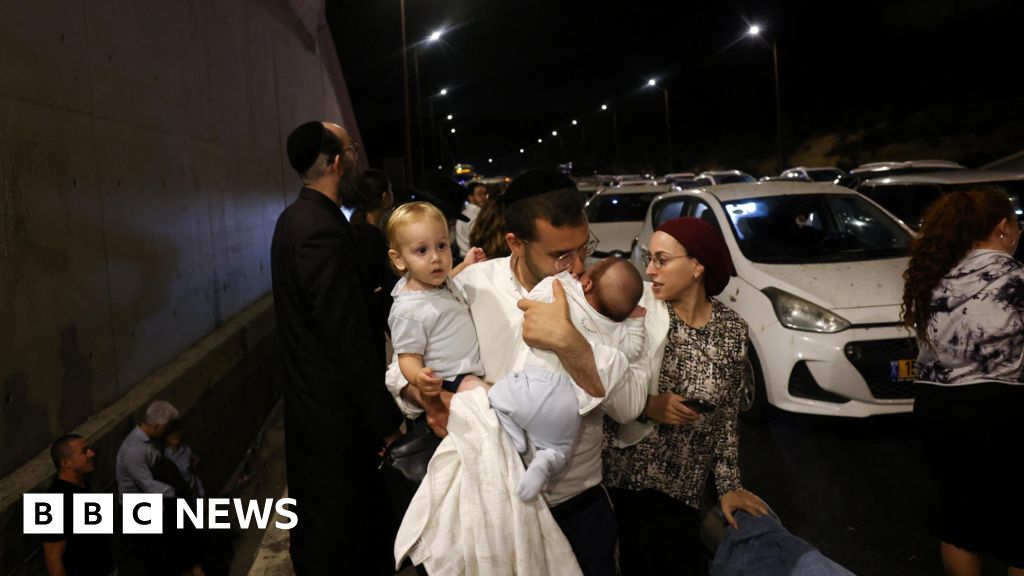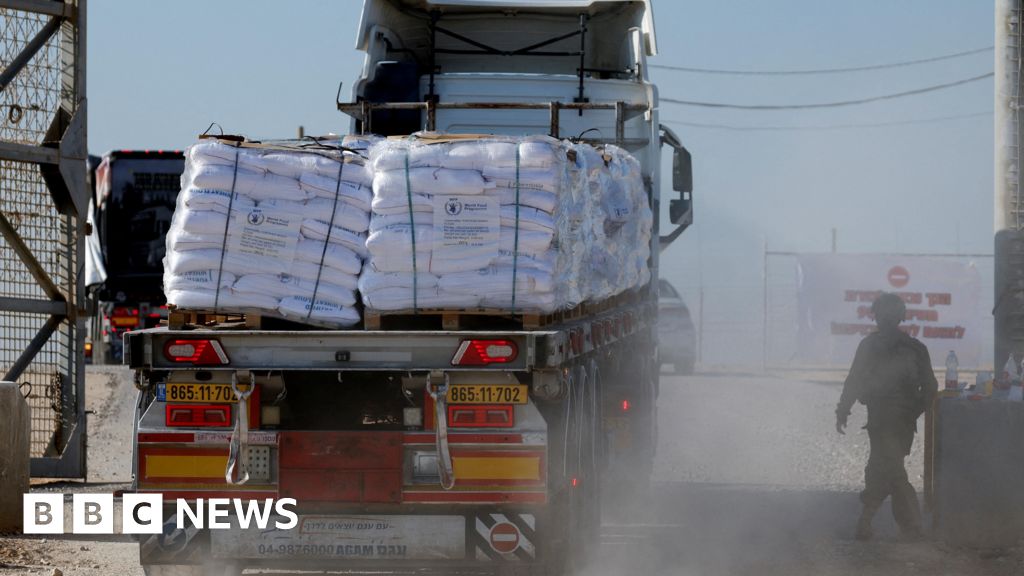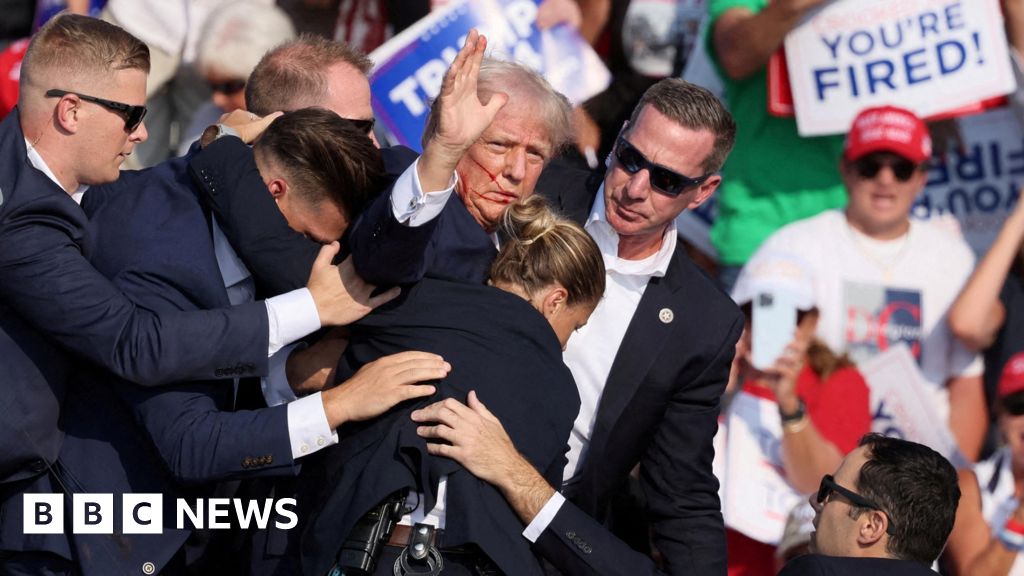
Explosions have been heard across Israel after Iran said it had launched dozens of ballistic missiles towards the country.
The Israeli military said there were a large number of interceptions and a “few hits” in central and southern areas, and warned Iran that the attack would have “consequences”.
Israeli paramedics said two people had suffered light injuries after being hit by shrapnel in the central Tel Aviv area.
Iran’s Revolutionary Guards said it launched the missiles in retaliation for recent attacks that killed the leaders of Hezbollah and Hamas, as well as a senior Iranian commander.
They also threatened that there would be further “crushing attacks” if Israel responded.
Iran’s supreme leader had vowed on Saturday that Israel’s killing of Hezbollah ally Hassan Nasrallah would be avenged.
The missile attack also came hours after Israeli troops began an invasion of southern Lebanon to remove what the Israeli military said were “Hezbollah terror targets” in border villages that posed a threat to residents of northern Israel.
Israel has gone on the offensive after almost a year of cross-border hostilities sparked by the war in Gaza, saying it wants to ensure the safe return of residents of border areas who have been displaced by Hezbollah attacks.
However, there are widespread fears that the significant escalation of their long-running conflict risks an all-out regional war that draws in the US and Iran.
Before the missile attack, Prime Minister Benjamin Netanyahu told Israelis in a video statement: “We are in the midst of a campaign against Iran’s axis of evil.
“Together we will stand steadfast in the trying days ahead of us. Together we will stand. Together we will fight and together we will win.”
A senior White House official meanwhile told reporters in Washington: “A direct military attack from Iran against Israel will carry severe consequences for Iran.”
In April, Iran launched more than 300 drones and missiles at Israel in retaliation for a deadly strike on the Iranian consulate in Syria that killed several top commanders.
Almost all of them were shot down by Israel, the US and other Western allies and their Arab partners, and an air base in southern Israel sustained only minor damage when it was hit.
Israel responded by launching a missile that hit an Iranian air base.
US officials said earlier that Iran had been ready to launch a new missile attack against Israel on short notice since early August, when it threatened to retaliate for the assassination of Hamas leader Ismail Haniyeh in Tehran. Israel neither confirmed nor denied that it killed Haniyeh.
On Saturday, a day after Hezbollah’s leader was killed in an Israeli air strike in Beirut’s southern suburbs, Iran’s Supreme Leader Ayatollah Ali Khamenei promised that the death of Hassan Nasrallah “shall not go unavenged”.
He gave no details, but said: “The fate of this region will be determined by the forces of resistance, with Hezbollah at the forefront.”
Iran has built a network of allied armed groups across the Middle East, which are all opposed to the US and Israel and sometimes refer to themselves as the “Axis of Resistance”. Besides Hezbollah, they include Hamas in the Palestinian territories, the Houthis in Yemen, and a number of Shia militias in Iraq and Syria.


